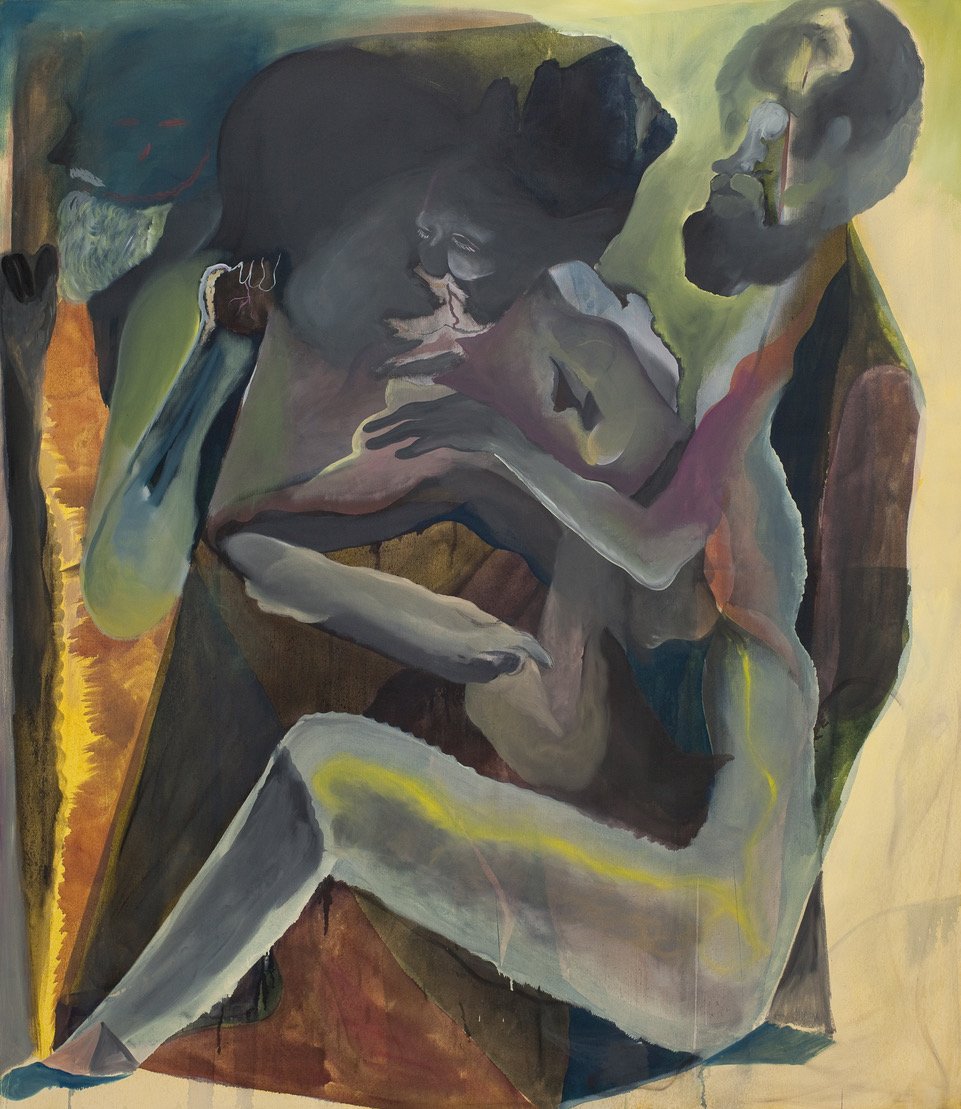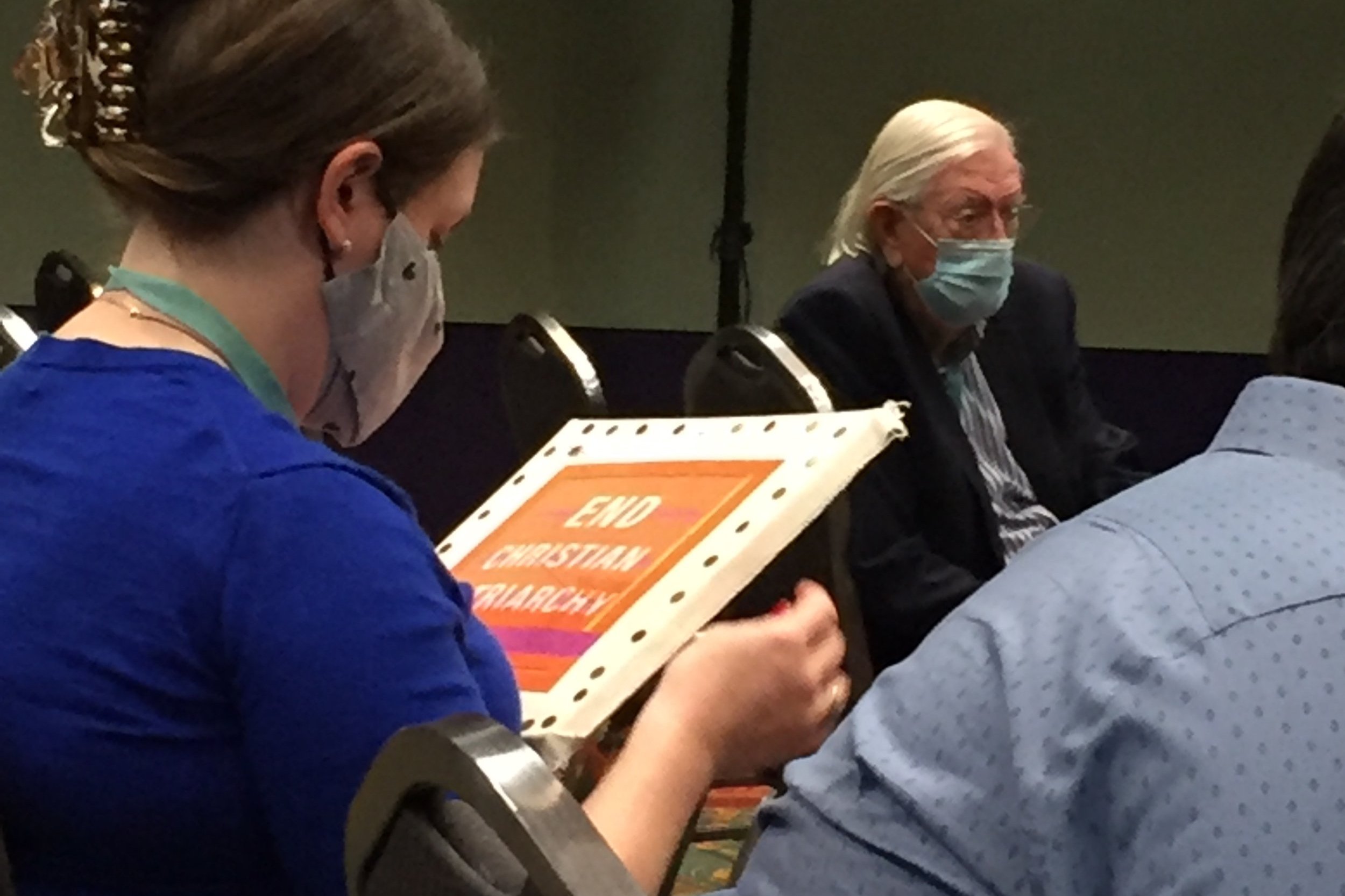
9. Religionspolitologisches Forum
Who Is Afraid of Gender?: Identitarianism in Service of State Power
December 4th–5th, 2025, Melk, Austria
Gästehaus Benediktinerstift Melk
Organization: Katerina Koci, University of Vienna
Call for Papers
The intensifying political and cultural battles surrounding “gender” have transformed what was once primarily an academic concept into a potent symbolic battleground in contemporary politics. This Fachtagung examines how the term “gender” has been weaponized in political discourse across multiple national contexts, with particular attention to recent developments in the United States and the longer trajectory of anti-gender movements in Central and Eastern Europe.
This Fachtagung invites interdisciplinary contributions that analyze these developments through multiple lenses: political science, theology, religious studies, sociology, history, and media studies. We seek papers that address key questions:
What explains the extraordinary symbolic power of “gender” in contemporary political discourse?
How do we assess the claims that gender research threatens social cohesion and national stability? What evidence exists for such assertions?
To what extent do anti-gender campaigns serve as proxies for broader political agendas related to nationalism, religious authority, or democratic backsliding?
What are the material consequences of these campaigns for academic freedom, knowledge production, and transnational scholarly networks?
How do religious actors and institutions position themselves within these debates?
By bringing together diverse disciplinary perspectives, this workshop aims to develop a more nuanced understanding of how gender functions as both target and instrument in contemporary political strategy, and what this reveals about the changing relationship between knowledge, power, and identity in the current moment.
Papers will be presented in German or English. The open discussion will be bilingual.
Please, submit your paper proposal including a short abstract no later than September 30, 2025 to katerina.koci@univie.ac.at


EuARe Conference
When Silence Speaks: The Politics of Sacred and Secular Resistance
Panel Proposal
In the face of political oppression, silence has emerged throughout history not merely as absence of speech, but as a powerful form of resistance. This panel aims to explore various manifestations of silent resistance across religious, secular, and artistic domains, examining how deliberate withdrawal from discourse can paradoxically serve as a profound form of political expression. From religious examples such as Christ's silence before Pilate and the testimonies of martyrs, to philosophical instances like Socrates' acceptance of his sentence, to modern-day political prisoners and dissidents who choose silence as their weapon, we seek to understand how silence functions as both a personal and political act. The panel will particularly examine artistic representations of silent resistance in literature, film, and other media, investigating how creative works have interpreted and reimagined these acts of withdrawal. Furthermore, we will explore contemporary forms of protest through withdrawal, considering how historical examples of silent resistance inform and illuminate modern practices.
We invite papers from scholars across disciplines including, but not limited to, religious studies, philosophy, political theory, literature, and art history. We are particularly interested in contributions that examine philosophical and theological interpretations of silence as resistance, as well as artistic representations that engage with this theme. Papers may address historical or contemporary examples, theoretical frameworks for understanding silent resistance, or comparative analyses across different cultural and temporal contexts.


“Power and Leadership: Biblical, Anthropological, and Practical-Theological” Workshop
At the workshop "Power and Leadership: Biblical, Anthropological, and Practical-Theological," organized by Dr. Armin Kummer at Leuven, I will present a paper titled "Putting on Sarah's Skin." This interdisciplinary gathering brings together various approaches to examine power and leadership through biblical, anthropological, and practical-theological perspectives.

"Political Theology: New Horizons" Workshop
The Research Centre for Religion and Transformation is pleased to host a workshop titled "Political Theology: New Horizons," organized by our visiting scholar Dr. Anna Sjöberg from Sweden. This international gathering will bring together scholars from Swedish institutions and our research centre to explore emerging perspectives in political theology. Among the diverse contributions, the program includes the presentation of my habilitation project "The Two Sarahs", alongside other papers reflecting both Nordic and Central European approaches to questions at the intersection of religion and politics.

ERC Project Proposal Presentation
At the Blocktermin of the Research Unit Fundamental Theology in Melk on January 18, 2024, I presented my ERC Project Proposal "Double Burden: Surrogate Strategies." My presentation focused on a novel reading of the Sarah-Hagar narrative (Genesis 16 and 21) through a post-socialist lens, examining the complex dynamics of surrogacy and burden-bearing in the biblical text. The interdisciplinary audience engaged with my methodological approach of bringing post-socialist perspectives to biblical interpretation, offering valuable insights and constructive feedback. This scholarly exchange proved particularly beneficial for refining my project's theoretical framework and strengthening its potential contributions to both biblical studies and post-socialist research.

FWF Project Presentation at the RaT Studientag
At the RaT Studientag held in Melk, I presented my FWF Elise Richter project titled "The Two Sarah: Victimhood in the Bible and Its Reception." The presentation sparked engaging discussions among the interdisciplinary academic audience, who offered valuable insights and constructive feedback on my research approach. My analysis of the biblical narratives surrounding the two Sarahs and their reception history was particularly well-received, with colleagues appreciating the methodological rigor and innovative perspective I bring to this comparative study. The scholarly exchange at this venue proved especially fruitful, as the diverse academic backgrounds of the participants contributed to a rich dialogue about the project's implications for biblical studies, reception history, and victim studies.

Lecturing at the University of Haifa
I will be a guest lecturer at the University of Haifa and will have the opportunity to network and share my research on intersectional feminism and violence among women with esteemed colleagues from the University of Tel Aviv and the Hebrew University of Jerusalem.

Religionspolitologische Forum
Paper: Religion and Violence of Women against Women
Abstract
While feminist scholars have extensively studied gender-based violence, the religious dimension has been relatively overlooked, possibly due to the perception of inherent patriarchal elements in global and local religions. Building on the foundational work of scholars like Nancy Nason-Clark and Marie Fortune, who have explored gendered violence within religious contexts.
This paper delves into a less-explored aspect of violence within the #MeToo movement—instances where women perpetrate violence against other women, both directly and indirectly. By drawing parallels with the biblical figures of Sarah and Hagar, it aims to examine layers of oppression through feminist intersectionality, studies of masculinity, and postcolonial feminist perspectives on Hagar as a symbol of female suffering in patriarchal societies.
To comprehend the anthropological phenomenon of violence among women, I will shortly present cases of polygynous unions in African countries, drawing parallels to the experiences of Sarah and Hagar in terms of cohabitation, resource-sharing, and partnership dynamics showing instances where oppressed women cooperate for a common goal and cases where subordinates direct violence against their superiors.
The primary objective of this paper is to elucidate the influence of Jewish and Christian religions, particularly the Hebrew Bible, on violence perpetrated by women against other women within the #MeToo movement, which advocates for solidarity among women.

Sacrifice and the Body Beyond Metaphysics
Abstract
This workshop will examine the concept of sacrifice and its relationship to the body from the perspectives of philosophy, theology and film. Historically, sacrifice has been discussed primarily as a metaphysical concept within the realm of ethics. However, feminist scholars in philosophy and theology have increasingly focused on the embodied nature of sacrifice and its concrete impact on the (mainly female) body. The workshop will explore the approaches to sacrifice and the body, highlighting ways in which they differ and overlap. We will seek a nuanced understanding of sacrifice, one that acknowledges the ways in which the body is implicated in sacrificial acting and the differential impact of sacrifice on different bodies. In the broader sense, the workshop will aim for an embodied approach to sacrifice which can offer new insights into the nature of sacrifice itself, as well as its social and cultural significance.
Please, register for the lecture of Prof Sherwood via the IWM website.
.

Female Corporeality and Religion
Sarah’s Sacrifice: Body, Soul and Mind under Gendered Oppression
Abstract: This paper explores the phenomenon of Sarah’s sacrifice which is undeniably gendered. It builds upon Julia Kristeva’s psychoanalytical and linguistic explorations which include above all women’s bodies and gestation processes as a basis for the victimisation of women. Furthermore, Kristeva’s theory explains that women who are exposed to long-term oppression tend to respond in two ways: either they self-sacrifice or they overreact and become perpetrators. This paper will focus on the latter. Firstly, I will re-evaluate and challenge the gendered dichotomy between Abraham and Sarah in the Abrahamic stories Gen 12-25. I will challenge the image of the oppressive and patriarchal Abraham, who mostly does what he is told to do either by God (Gen 12:7; 22:2) or by Sarah (Gen 16:2; 21:10). Secondly, I will depict Sarah as the illustration of Kristeva’s theory of sacrifice according to which the victim becomes a perpetrator. I will argue that Sarah should not be interpreted as an unconditional victim but as an ambivalent character who collaborates with patriarchy and embraces the roles of both perpetrator (in her oppressive attitude towards Hagar in Gen 16 and 21) and victim (when Abraham prostitutes her to pharaoh in Gen 12, to Abimelech in Gen 20, and when he sets out to sacrifice their son Isaac in Gen 22). This paper aims to put forward the results of gendered sacrifice by (i) depicting its double impact, and (ii) shedding light on the often neglected case in which the victim becomes the oppressor.

Woolf Public Seminar: Post-Kantian Philosophy
Art and Sacrifice: Human Self-Transcendence towards Freedom and Truth
Abstract: Jan Patočka and Hans-Georg Gadamer, two students of Martin Heidegger, have much to say on these phenomenological and hermeneutical questions. Basing their research on (but also criticising) the scholarship of their teachers Kant and Hegel, both thinkers re-assess and redefine the nature of art and its role in the human struggle to attain understanding and truth. The truth, they believe, is not above or beyond the work of art but lies rather in the work itself. They differ, however, in their understanding of how that truth is disclosed. This presentation will introduce art as a free but active endeavour (or “movement of human existence”) which aims to transcend the everydayness of our lives and disclose the truth or meaning and whose process of creation is best explained in terms of sacrifice.
View the event here.

Research Stay at Science and Research Centre Koper
During my research stay/visiting fellowship at the Science and Research Center in Koper, Slovenia I had the opportunity to discuss my research on gender aspects of sacrifice with my Slovenian colleagues with the same research focus Prof. Lenart Skof, Dr. Nadja Furlan Stante and Dr. Luka Trebeznik. I acted as a visiting scholar to the Science and Research Center in Koper and was granted the office for my own use.
I have invited members of the research group to the conference on sacrifice and gender with which I want to conclude my project and which I plan to organize in October 2023. During the whole time, I was drafting my article "Sarah's Sacrifice: Gender, Patriarchy and Oppression in the Akedah and the Handmaid's Tale" which I intend to publish in the international peer-review open access journal entitled ESWTR Studies in Religion.


On the Death Giving: War and Sacrifice in Patočka and Derrida
Lectures by David Dusenbury and James Dodd
Abstract: Despite the effort not to repeat the mistakes and atrocities of the previous generations, the twenty-first century continues to be a century of wars and suffering. In these lectures, David Dusenbury and James Dodd will reflect on Patočka’s and Derrida’s phenomenological analysis of self-sacrifice as a form of resistance in extreme situations of oppression (war or repression of authoritarian/totalitarian regimes).


Geschichte Aktuell
Presentation of the paper on Patočka and the Philosophy of History written together with Martin for the project “Geschichte Aktuell” put together by Burkhard Liebsch.

Forum Religionsphilosophie
Project presentation for Religionsphilosophische Forum, University of Vienna, AT


Doomed to Sacrifice?
Existential and Phenomenological Perspectives on Sacrifice and Gender

Religionspolitologisches Forum 2021
A Hidden Life of Love and Sacrifice
“Cinematographic Philosophy” of Terrence Malick
The relationship between love and sacrifice is undoubtedly the axial theme of Malick’s most recent work A Hidden Life, an artistic depiction of the imprisonment and execution of Franz Jörgerstädter, an Austrian who refused to pledge allegiance to Adolph Hitler and chose to die instead. Malick’s original contribution to the understanding of love and sacrifice—the eminent philosophical, theological, and existential concepts—can be best interpreted on the background of the Kierkegaardian and (post)Heideggerian existential phenomenology.
My paper begins with untangling the relationship of Franz and Franziska Jägerstätter within the Kierkegaardian exposition of self-denying and sacrificial love which I suggest interpreting as a hermeneutical key to Franz’s sacrifice. I will continue unveiling Franz’s sacrifice as a revelatory and transformative event that breaks with the pernicious ‘enframing’ of human life, and thus as a unique act of freedom and truthfulness of the individual which might not change anything in the present moment but changes everything in the long run: the so-called sacrifice for no-thing (Heidegger, Patočka). I will close my paper by arguing (i) that not despite but because of true love was Franz able to die rather than help the evil, (ii) that Malick in his interpretation overcomes Kierkegaard by proving that not only neighbourly but also preferential love can be self-denial and sacrificial with the revelatory and transformative potential, and (iii) that even though Franziska also has her share (she has to live, raise children and farm the land facing the hostility of her neighbours), her sacrifice goes rather unnoticed, even in Malick’s cinematographic philosophy.

Sovereignty and Political Mythologies
Guest lecture by Prof. Colby Dickinson
Loyola University Chicago, USA

Fellows Colloquium: Whose Story? Which Sacrifice?
Sacrifice may be a topic of intense philosophical-theological academic debate, but it is also the everyday experience of millions of ordinary people. Scholarly reflection on sacrifice has produced an ambiguous discourse which stretches across numerous disciplines from anthropology, to religious and social studies, to ethics. Sacrifice has of course developed within the religious-cultic context and can be traced in global religions and local cults alike. My main biblical sources are the sacrificial stories of the binding of Isaac (Genesis 22) and the sacrifice of Jephthah’s daughter (Judges 11: 29–40); comparisons can be made with the story of the sacrifice of Iphigenia, daughter of Agamemnon, in Greek mythology. However, it is the secularized form of sacrifice that we face in our daily lives. Theorists of sacrifice outside gender studies either deny or disregard the fact that sacrifice is always gendered. The experience of sacrifice would nonetheless suggest that it is: women receive lower wages than men for the same work, and women are expected to combine their career with care for the family, to name but two examples.
The talk aims to contribute to rethinking human relations – especially their gendered aspects – with and against the tradition of sacrificial discourses deeply imprinted in the Western culture.
Saving God from Tyranny
An Author-meet-critics Roundtable on “Divine Self-Investment: An Open and Relational Constructive Christology,” by Tripp Fuller.
Webinar


